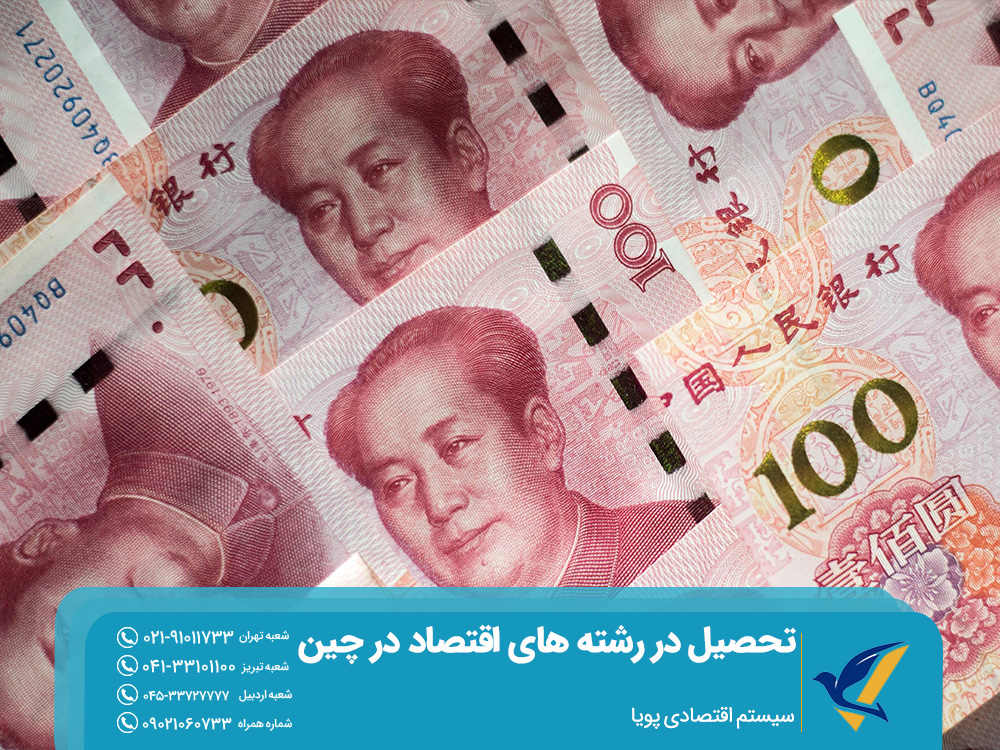China’s rapid economic growth over the past few decades has established it as a global powerhouse in the field of economics. This has significantly increased the appeal of studying economics in China for international students seeking to understand the complexities of modern economies. As the world’s second-largest economy, China offers a unique advantage for studying economics, combining dynamic government-driven policies with a prominent role in international trade.
Top Chinese universities for economics, supported by substantial government investment and ambitious initiatives such as Project 211, Project 985, and the Double First-Class University Plan, have emerged as leading higher education institutions in economic education. These universities blend rigorous academic training with practical real-world applicability. In this article from the Elm Vira series, join us as we explore the cost of studying economics in China.
Benefits of Studying Economics in China
Studying economics in China offers numerous advantages that fulfill both academic aspirations and career goals, making it an attractive option. As China cements its position as a global economic leader, its universities provide a unique environment to explore economic theories, policies, and practices through the lens of a country that has achieved unprecedented growth. Below, we examine the benefits of studying economics in China.

- Dynamic Economic System
Chinese universities offer unique insights into one of the world’s most dynamic economies. China’s mixed economic system, which combines government control with free-market elements, serves as a living laboratory for students to analyze economic phenomena in real time. Economics programs often emphasize China’s development strategies, such as the Belt and Road Initiative and its booming digital economy, providing students with perspectives on how policies impact global markets.
Studying economics in China is especially valuable for students interested in emerging markets or international trade, as the country’s role as a manufacturing hub and innovator offers lessons unavailable elsewhere.
- Academic Rigor and Extensive University Resources
The academic rigor and resources of Chinese universities enhance the high quality of the learning experience. Institutions like Tsinghua University, Peking University, and Shanghai Jiao Tong University, with globally expert faculty and advanced research facilities, rank among the best in the world.
Government initiatives like the Double First-Class University Plan allocate significant funding to these universities, ensuring access to modern infrastructure, extensive libraries, and data-driven research opportunities. Many economics programs in Chinese universities are offered in English, increasing accessibility for international students. Studying economics in China provides students with academic standards aligned with global benchmarks.
- Affordable Costs
Compared to Western counterparts, the cost of studying economics in China is relatively low, ranging from $2,000 to $10,000 per year depending on the university and degree level. Additionally, the Chinese government and universities offer unique scholarships covering tuition, dormitory fees, and study allowances. This affordability allows students to obtain a world-class education without the financial burden commonly found in countries like the U.S. or the U.K.

-
Abundant Career Opportunities
Studying economics in China provides exceptional career and networking opportunities for students. Proximity to economic powerhouses such as Beijing, Shanghai, and Shenzhen means students can take advantage of internships or collaborations with multinational companies, state-owned enterprises, and startups leading China’s tech and finance sectors.
Top Chinese economics universities often facilitate industry connections through job fairs, guest lectures, and international partnerships, offering graduates networking benefits in fields like banking, consulting, and international development. For those aiming for a global career, proficiency in Mandarin significantly enhances employability, as China’s influence in global markets continues to grow.
-
Cultural Experience
Finally, the experience of exploring China’s culture and economy is transformative for students. Living in China exposes students to a rich blend of traditions and modern innovations, fostering adaptability and intercultural competence. Exposure to diverse perspectives—from the influence of Confucianism on business ethics to debates on sustainability—enriches students’ critical thinking.
Requirements for Studying Economics in China
International students wishing to study economics in China must meet specific eligibility criteria that vary by university, degree level, and language of instruction. These standards ensure applicants are academically prepared, linguistically capable, and legally qualified to pursue education in China. Below, we will review the requirements for studying economics in China.

- Academic Requirements
Students intending to pursue a bachelor’s degree in economics must present a high school diploma or its equivalent recognized by the Chinese Ministry of Education. This process often involves submitting transcripts demonstrating strong performance in relevant subjects such as mathematics, statistics, and social sciences, with a minimum grade of 17 (out of 20), which is commonly required by universities. Some top universities may also require entrance exams or interviews as part of the admission process.
- Language Proficiency
Studying economics in China is possible in both Chinese and English. For programs taught in Chinese, international students must prove their Mandarin proficiency, usually through the HSK exam. Most undergraduate programs require at least HSK Level 4, while graduate programs may require Level 5 or 6.
For programs taught in English, students must provide TOEFL scores (minimum 80) or IELTS scores (minimum 6). Students whose native language is English or who have completed their education in English-speaking countries are typically exempt from providing these language certificates.
- Age and Health Requirements
- Chinese universities impose age limits for international applicants by government visa policies. Generally, applicants for undergraduate economics programs should be under 25 years old, master’s applicants under 35, and doctoral candidates under 40. Physical and mental health is also a critical admission criterion. Students must provide a health certificate, including a physical examination report, to demonstrate that they meet university and visa health standards and are capable of handling academic life demands.

-
Financial Requirements and Student Visa
Applicants wishing to study economics in China must demonstrate their financial ability to cover tuition fees (usually between $2,000 and $10,000 per year) and living expenses. This may involve submitting bank statements, sponsor guarantees, or proof of scholarships. After receiving admission, students must apply for a Chinese student visa. A residence permit is required within 30 days of arrival in China.
-
Application Requirements and Necessary Documents
The application period for studying economics in China varies by university. The application process is conducted online through the university’s website. Applicants must meet the eligibility criteria, prepare and translate required documents, and submit them within the application deadline. Necessary documents for admission applications typically include:
Tuition Fees for Studying Economics in China
Tuition fees for international students studying economics in China are significantly more affordable compared to Western institutions, making it one of the best options. The cost of studying economics in China includes tuition, accommodation, and other expenses, which vary depending on the university, degree level, and language of instruction. Below, we will examine the tuition fees for economics studies in China in detail.

1. Tuition Fees
Tuition fees represent the largest portion of study costs in China and vary depending on the type of university, degree level, and language of instruction. Undergraduate programs at public universities typically range from $2,000 to $5,000 per year. Reputable institutions such as Tsinghua University, Peking University, and Shanghai Jiao Tong University may charge between $4,000 and $10,000 annually. Tuition for programs taught in English is generally higher than those taught in Mandarin. Master’s programs usually cost between $3,000 and $6,000 per year, while PhD programs can cost from $4,000 to $8,000 per year. Private universities and specialized programs tend to be more expensive.
2. Living Expenses for Studying Economics in China
Student living expenses in China vary depending on lifestyle, type of accommodation, and city of study. University dormitories are the most affordable housing option for international students, costing between $500 and $1,500 per year. Renting an apartment off-campus in major cities like Beijing or Shanghai can be expensive, ranging from $300 to $800 per month.
Daily expenses, including food, transportation, and others, range from $300 to $500 per month in large cities and $200 to $350 in smaller cities. University cafeterias offer meals priced between $2 and $5. Public transportation costs are estimated at $10 to $20 per month.
3. Additional Expenses
Besides tuition and living costs, students studying economics in China should consider miscellaneous expenses. Mandatory health insurance for international students costs around $100 to $150 per year. Books and stationery expenses range from $100 to $300 annually. Student visa fees can vary between $50 and $150. Overall, the total annual expenses for economics students in China, depending on lifestyle and university choice, range from approximately $4,000 to $15,000.

Top Economics Universities in China
China’s top economics universities have gained recognition due to rapid development fueled by significant government investment through initiatives such as Project 211 and Project 985. These efforts have elevated academic standards especially in economics by advancing cutting-edge research, modern facilities, and international collaborations. The campuses boast advanced libraries, state-of-the-art data laboratories, and lecture halls equipped with the latest technologies, providing an ideal environment to study complex economic systems.
Many of these universities offer economics programs in English, attracting a diverse range of international students. Located in vibrant economic hubs such as Beijing and Shanghai, these universities provide access to internships and industry networks that combine theoretical learning with practical application. They offer affordable tuition and numerous scholarships, blending high-quality education with exceptional resources. Some of the best universities to study economics in China include:
- Tsinghua University
- Peking University
- Fudan University
- Shanghai Jiao Tong University
- Zhejiang University
- Nanjing University
- Wuhan University
- Shandong University
- …and more.
Summary
Studying economics in China attracts a wide spectrum of international students eager to explore the country’s economic model, and its global influence, and acquire the skills needed to navigate an interconnected financial landscape. Today, China’s top economics universities offer a broad range of programs at various levels, often taught in both Mandarin and English to appeal to a global audience. These universities stand out for their advanced curricula that blend traditional theory with contemporary topics.
These programs provide unparalleled access to China’s economic hubs, where students witness firsthand the interplay of policy, innovation, and market forces. This article aims to equip you with all essential information regarding the conditions and costs of studying economics in China. By pursuing educational migration to China, you can build a bright future. If you don’t know where to start, simply click to receive our free consultation, and we will guide you toward the best path for your educational migration journey.
میانگین امتیازات 5 از 5
Vote count: 1 Vote